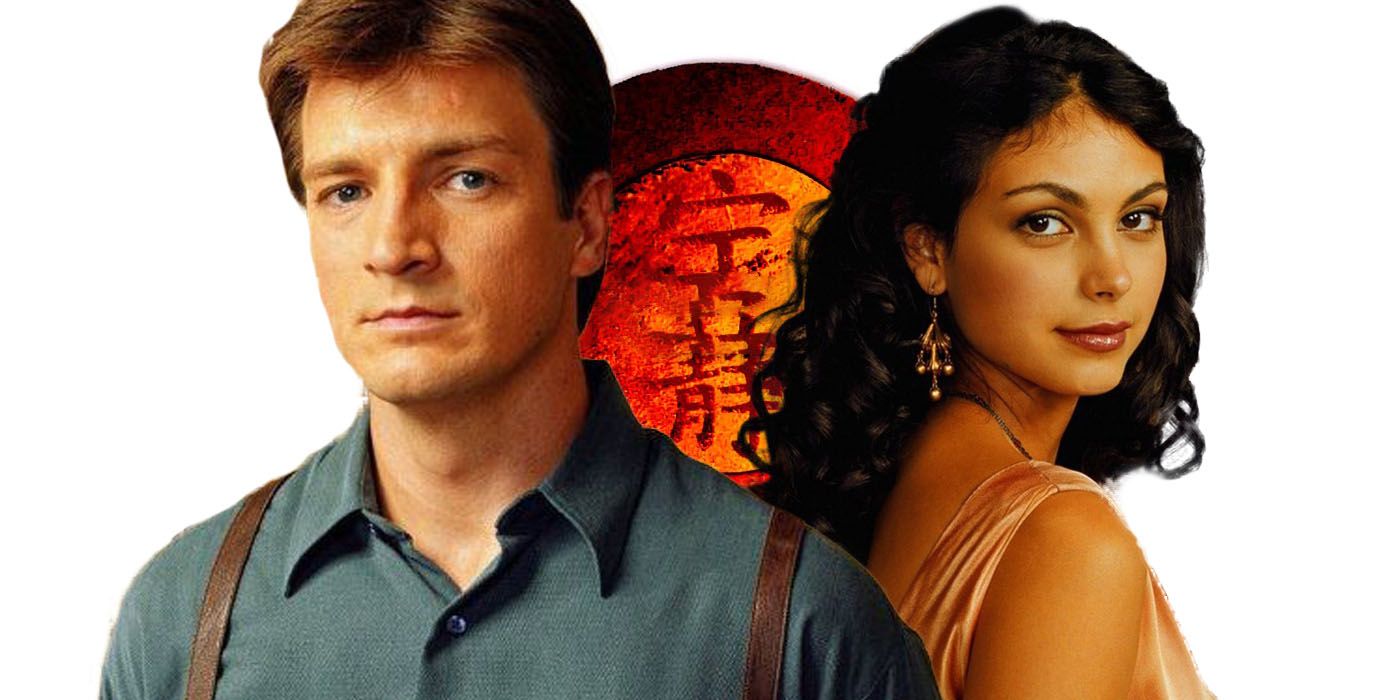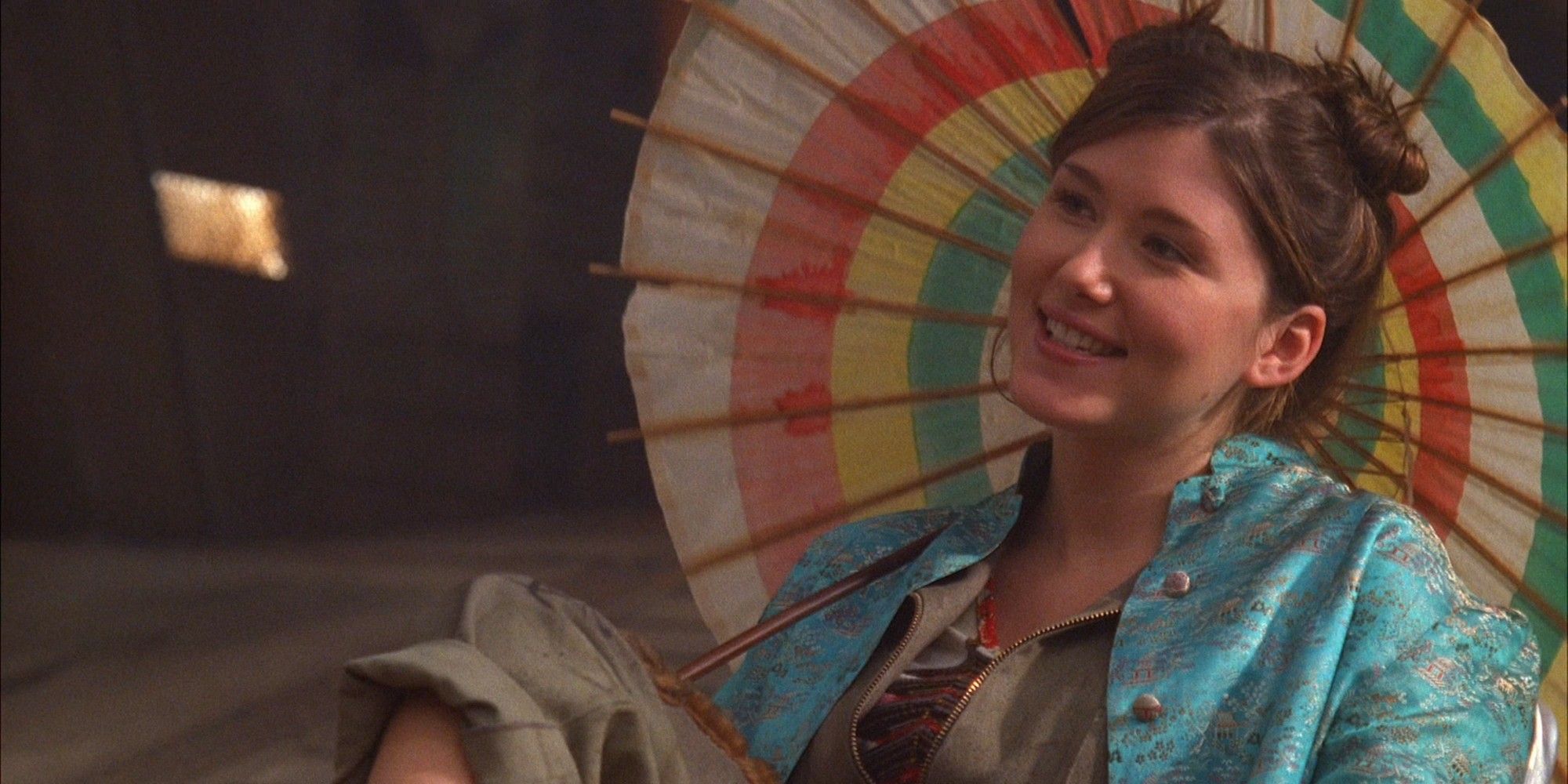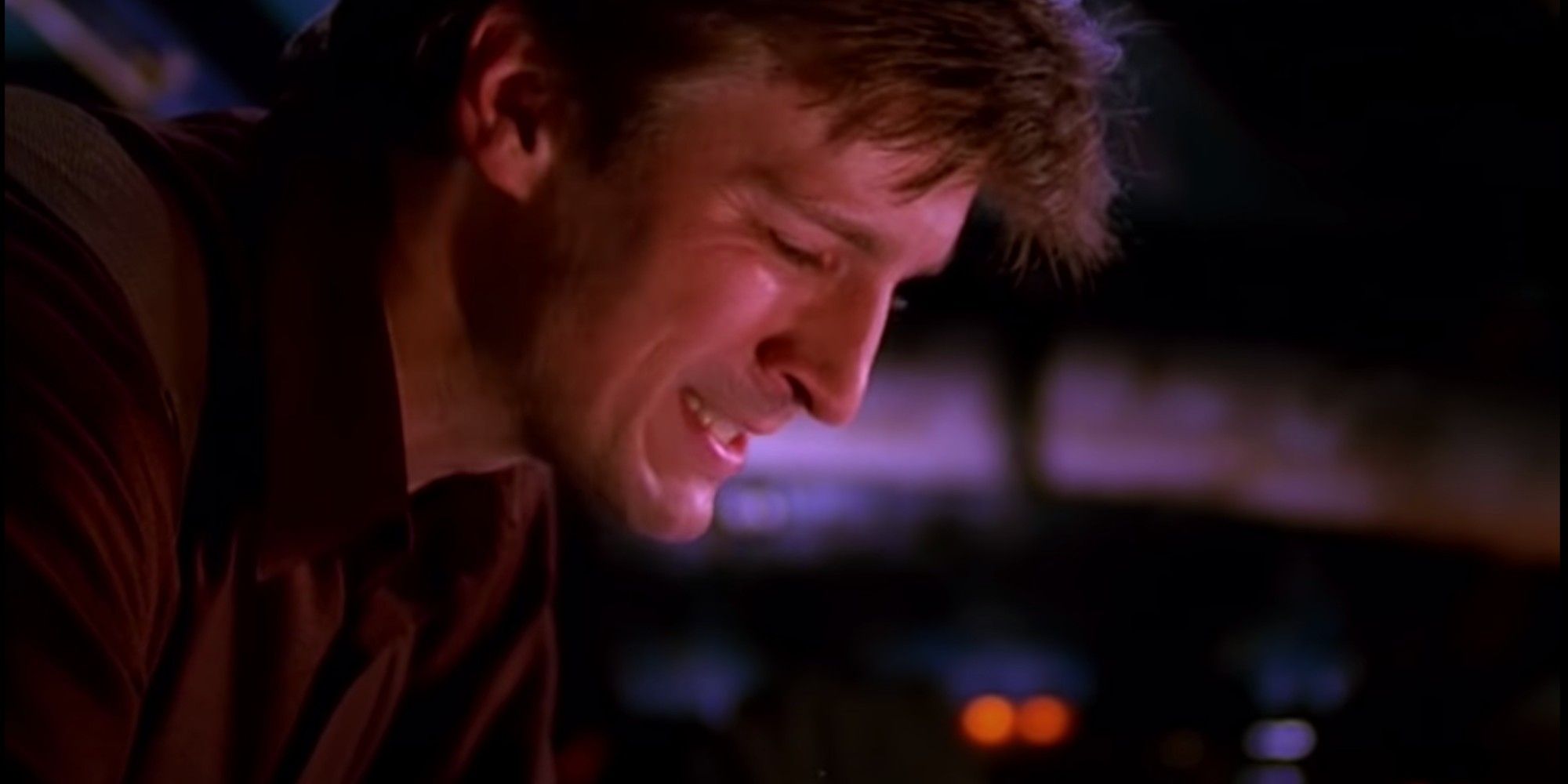
Joss Whedon's iconic space western Firefly doesn't just take audiences into the future, but plunges them into a culture that's a blend of American and Chinese. Throughout the short-lived series, characters often speak Mandarin Chinese without subtitles. By excluding a translation, Whedon makes the foreign loan words an integral part of the show's universe. Instead of taking the audience into a different place or time, Chinese interjections reinforce the idea that the culture is a seamless part of daily life.
Despite lasting only one season, Firefly picked up a huge fan following after it first broadcast on Fox in 2002. The show follows spaceship captain Mal Reynolds and his small but loyal crew as they try to make a living under the authoritarian rule of the Alliance. After the show was abruptly cancelled mid-season, fan demand prompted the creation of the film Serenity, which revealed the Alliance's master plan and concluded the series.
Set in the year 2517, the show begins with the premise that humanity has spread across space after "Earth-That-Was" was depleted of all its resources. Following the death of the planet, humans found a new solar system and colonized new planets, terraforming them into copies of Earth. In this new future, the United States and China grew together to form the "Anglo-Sino Alliance."

One of the reasons for Joss Whedon's use of Chinese in Firefly is to show how closely the cultures are intertwined. In the Firefly universe, Chinese is to future Americans as Spanish is to present-day Americans. It's easy to imagine how government forms could be written in English and Chinese, as they are written in English and Spanish now. In the main series, there are signs written in both languages and, in Serenity, TV is aired in Chinese.
The Firefly series has been accused of cultural appropriation, since there are no major Asian characters. Although the culture is apparent in the characters' language and clothing, actual Chinese people were not cast in the show. Still, language is integral to society, so the idea that everyone is fluent to both languages paints a picture of a truly integrated culture. In an early on-set interview in 2002, Joss Whedon said he decided to use Chinese to show the blending of the two cultures.
"Since they are the two great superpowers of this earth, I thought instead of killing each other, as everybody seems to be predicting we will, what if they in fact came up together and kind of melded?" he said. Whedon also said in a later interview that he found the idea of the mix of cultures plausible, especially in a western frontier setting. "The Wild West was full of people from the Far East, and so the mixture of those two cultures — that’s what history is, it’s culture in a blender," the showrunner explained. "And so to take those two and juxtapose them, the idea that every nobody speaks fluent Chinese to me is kind of delightful and not actually unrealistic."

When the Firefly characters do speak Chinese, it's often in times of crisis. Mal and Zoe are frequently heard using it when their circumstances change for the worse or there's an unexpected shift in the plan. Wash, the pilot, uses it when an alarm goes off alerting him of an equipment malfunction. Characters use it in arguments, when they're angry and when they want to make a point.
In moments of high emotion, the meaning of a few words or a sentence can be understood through context and the actor's delivery. Even without knowing the literal translation of the words, it's easy to tell that the characters are cursing. The foreign language also adds emphasis to the dialogue. When the audience hears Chinese, they know that the situation is truly serious. It's something not often seen on television and an original way to engage audiences in the events of a dramatic show.
Although the characters do sometimes use Chinese to get away with swearing, there may not be as much cursing used in the show as the audience thinks. Some notable swears include "pigu," which translates to ass, "aiya" and "tzao-gao," which are both used like "damn" in English, and "go tsao de," meaning "dogf***ed." The show also uses some creative phrases in Chinese that do not literally translate into English swear words, but can still turn the air blue.
Some other common phrases used in Firefly — "gǒushǐ" (crap) "Bi zui" (shut up) and "Shen me" (what) — translate clean. Whedon may have wanted to go further, but it seems the global nature of TV put a kibosh on the scheme to circumvent censors. "The one big restriction we had was, we couldn’t say anything actually really dirty in Chinese," Whedon said in an interview. "Because they were like, 'Mm, if this goes overseas, people will be able to understand what they’re saying, so you can’t cuss.' Originally, we had them cursing like sailors in Chinese, but they were like, 'No, you have to say something that can be understood [without offending speakers of Chinese].'"
from ScreenRant - Feed https://ift.tt/3k9rksQ


0 Comments